Back Page ►
Review:The baptism of the Holy Spirit (Born of causes and conditions)
Joseph travelled from Nazareth in Galilee south toward Bethlehem Ephrata with his betrothed Mary in her ninth month for a census of the entire Roman world which had been ordered by Caesar Augustus. Every person had to return to the city from which his family came for the census. Joseph had to go the Bethlehem Ephrata because he was of David's family. (Luke 2:1-5)
A child of injustice
Bethlehem was a walled city where the wealthy people lived. Some of the biblical characters that lived in the city of Bethlehem included Naomi, Boaz, Jesse, and Rehoboam. By contrast, Ephrata was a lowly farm community that grew food and raised sheep and goats for the city of Bethlehem and for the Temple. David's father and brothers lived in the City of Bethlehem but David was born and grew up in the Bethlehem Ephrata.
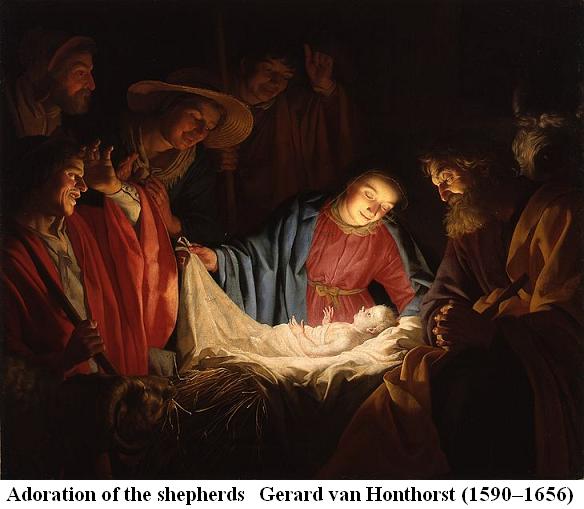
Thus Jesus was also born in Bethlehem Ephrata. (Luke 2:6) However, Joseph who had finished registering the census, for some reason did not return to Galilee, but travelled with Mary and the newborn, Jesus, to Egypt. (Mat 2:14) It may be mentioned that the fact that Mary had become pregnant caused some scandal in Nazareth, that is, the rumors that Joseph was not the one who had impregnated her, but that her pregnancy had been the result of an affair with another man. However, the Gospel of Matthew refers to the following legend; King Herod, the ruler of Judea, who had heard of a prophecy that the Messiah was to be born, ordered to slaughter all male sons, under the age of two. (Mat 2:16)
By the way, although David's father Jesse had a lawful wife called Nitzevet bat Adael, the name of David's mother is not in record and Psalms (Psalm 69) implies that David was a child of injustice. Perhaps Jesse had another house outside the city and kept his mistress in it. David seems to have had been born and raised under his own mother. If so, it seems to be no doubt that David belonged to the tribe of Judah. In contrast to it, if Jesus' father was not Joseph, the generally accepted idea that Jesus belongs to David's bloodline will become groundless.
The Escape to Egypt
Anyway, why did Joseph choose Egypt as a place of refuge for them? According to Mr. Shlomo Sand, Professor of history at Tel Aviv University, the Jewish population in Palestine was only about 800 thousand in the 1st century. In contrast to it, the Jewish population in the world was about 4 million. And big communities of Jewish believers seem to have been formed in Alexandria and Cyrene of North Africa much earlier. The numbers of gentile believers increased dramatically and Ecclesias (churches for the non-circumcision gentile believers, who could not formally attend Synagogue) were formed in many places around the Mediterranean. Alexandria seems to have been the hub of these Gentile Jews.
Although when Jesus made a debut to the religious society of Jerusalem with testimony of John the Baptist in Bethany (John 1:28), he was about thirty years old according to the Gospel of.Luke (Luke 3:23), there is no record regarding where Jesus had been or what he had been doing until then.
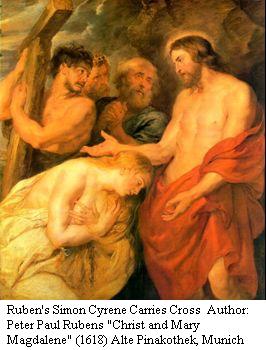
Joseph returned to Nazareth and finally married Mary after staying in Egypt for a few years. However, Joseph might have left Jesus in Egypt just as Jesse let David stay outside the city of Bethlehem until the son grew up. Therefore, Jesus, during he grew up in Egypt, might have determined to take on the role of leader of the gentile church movement and to be crucified in Jerusalem as a savior not only for Israelis but also people in the world. If so, the questions, such as where Jesus had been and what he had been doing before he suddenly appeared alone on the banks of the Jordan River and was baptized by John the Baptist (Mark 1:9/ Mat 3:13/ Luke 3:21), can be solved and it is no wonder that on the day of the Crucifixion, a man called Simon, who had taken his sons, Alexander and Rufus, and come to Jerusalem from all the way from Cyrene in North Africa, carried the cross to Golgotha on behalf of Jesus. (Mark 15:21/Mat 27:32/Luke 23:26) A thread of fate bound Jesus and Paul
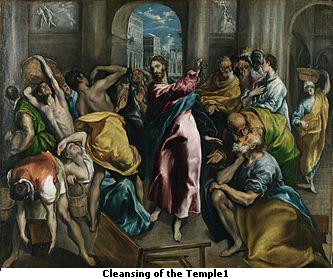
The grief and indignation of David, who was forbidden to enter the city of Bethlehem and was alienated from even his brothers, are written in Psalm 69, which is said to be penned by King David himself. When depicting the scene that Jesus made a whip out of cords, and drove all the merchants from the temple area during the Jewish Passover feast, the Gospel of John citing the passage, "Zeal for your house (the temple) will consume me (David)," from Psalm (69:9), implies that disciples noticed, albeit vaguely, that Jesus' zeal for the house of God would consume Jesus, in other words, his fate of the crucifixion was stated at that time. (John 2:17) However it was after the death of Jesus, and not at this time, that his disciples realized that the crucifixion had been chosen by Jesus himself as the way to reveal the essence of the baptism of the Holy Spirit, that is, the spiritual rebirth through sublating his flesh, to the world, according to the Gospel. (John 2:22)
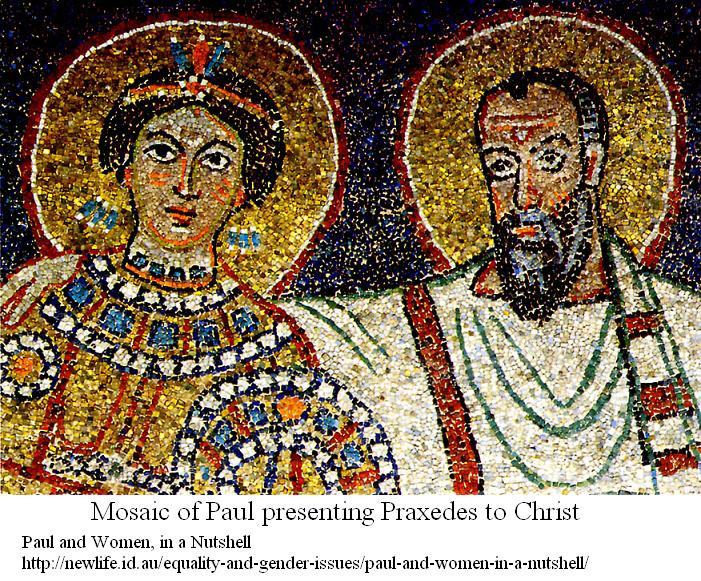
Jesus seems to have grown up in Egypt with grief and indignation just as David and perhaps to have supported in his adversity by the family of Simon of Cyrene.
Paul wrote, "Greet Rufus, whom the Lord picked out to be his very own; and also his dear mother, who has been a mother to me. (Roma 16:13)" at the end of 'Epistle to the Romans.' If Rufus mentioned by Paul in his letter is same person of the son of Simon, this mother of Rufus not only might have brought up Jesus together with her own children but also might have been a spiritual mother who converted Paul to Christianity. If so, Jesus and Paul would have been spiritual brothers through her. Thus, it seems that Jesus and Paul were bound by a thread of fate.
Born of causes and conditions
Once upon a time, Siddhartha Gautama (BC624/463-BC544/383), a young prince of Magadha in India, entered into dhyana (meditation) under a bodhi tree and saw that all phenomena of this world (form skandha) and the human existence itself, which responding to the phenomena, were not substantive, and testified, "The five skandhas (five aggregates: form, feeling, perception, formation and consciousness) were empty of nature." Then he calmed all suffering in this world.
According to his testimony, in emptiness, there is no form, no feeling, no perception, no formation, no consciousness; no ignorance, no end of ignorance up to no old age and death, no end of old age and death; no wisdom, no attainment, and no non-attainment. Since the bodhisattvas (superlative Buddhist trainees) have no attainment, they abide by means of prajnaparamita (supreme wisdom). Since there is no obscuration of mind, there is no fear. They transcend falsity and attain complete nirvana (ultimate salvation, that is, eternal life). (Heart Sutra)
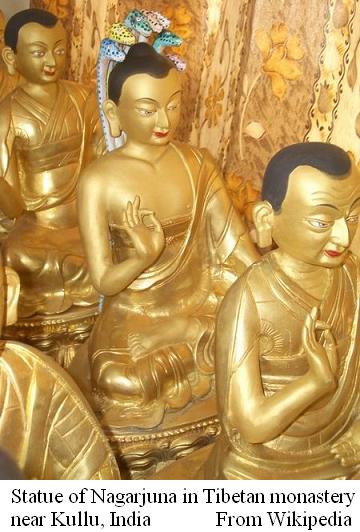
A few hundred years later, Nagarjuna (150?-250?) further described this theory in his book "The Treatise on the Middle Way" and stated: "Dharmas (phenomena) are born of causes and conditions. I say they are thus empty. They are also called the temporary name, and that is also the truth of the Middle Way." In this world, individual events and things perceived by men through their five senses are merely provisional names given to each process of changes. Thus they are called the temporary name. And they are not substantive, so, called emptiness. However, the truth only exists as universality within individual events and things and does not exist without individual appearances. Therefore, Nagarjuna called it the truth of the Middle Way.
During Wei, Jin, and Southern and Northern Dynasties period (220-589 CE) of China, Hui-wen (550-577), the founder of Tiantai Buddhism, who read this verse and at once perceived the triple truth, namely, the truth of emptiness, the truth of temporariness and the truth of mean, explained as follows. These three - emptiness, temporariness and mean - penetrate one another and are found perfectly harmonized and united. One should not consider the three truths as separate but as the perfectly harmonious three fold truth.
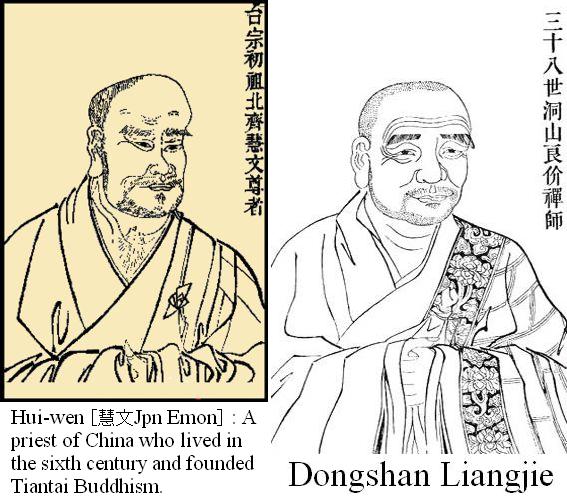
Then, DongShan LiangJie (807-869), a prominent Zen priest in Tang Dynasty of China, one day said to his disciples: "When one has experienced the ultimate of Buddhahood then one will be qualified to speak about it." A Bodhisattva can become a Buddha after enlightenment. However, a Buddha still has to further improve. And if one understands that, he is entitled to preach others, DongShan said. "What is this speaking?" a monk asked immediately. "When these words are delivered, you cannot hear them," the Master replied. "Will you be able to hear it?" demanded the monk. "As soon as I do not speak, I hear it," answered the Master. (The Transmission of the Lamp, Chapter 15) <To be continued>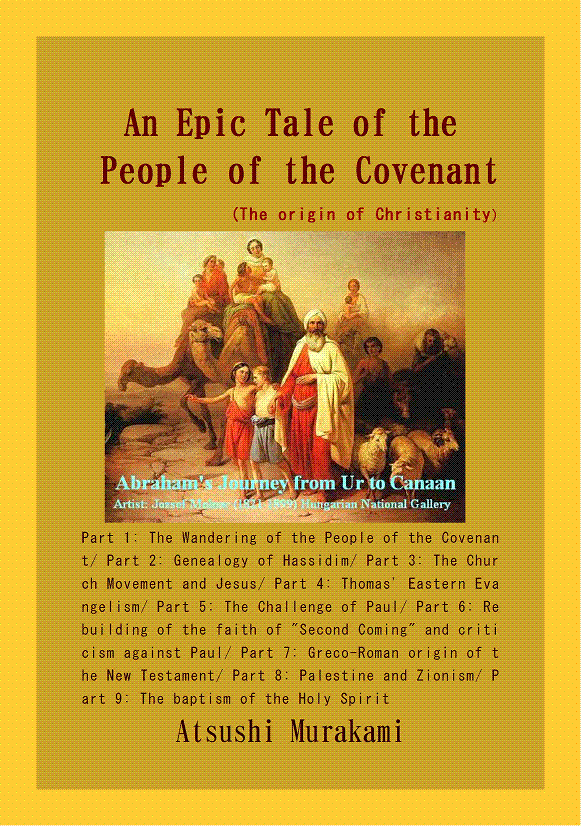
What is "Baptism with The Holy Spirit"?
According to the dialectic of the Gospel of John,
【Thesis】"A man can possess eternal life through accepting testimony of the Son of man and being baptized by him." (John 5:24)
【Anti-thesis】But "The one who comes from the earth cannot accept the testimony by one from heaven."(John 3:32)
How then can a man possess eternal life?
【Synthesis】"If you want to be baptized with the Holy Spirit, you can just go back to the word which was with God in the beginning (John 1:1) and certify that God is truthful. (John 3:33)"
When he said, "You are Huichao," Zen Master Fayan thrusted vivid Self in Huichao in front of his eyes.
Purchase here
[Reference]
Psalm 69
To the tune of “Lilies.” Of David.
1 Save me, O God, for the waters have come up to my neck.
2 I sink in the miry depths, where there is no foothold.I have come into the deep waters; the floods engulf me.
3 I am worn out calling for help; my throat is parched.My eyes fail, looking for my God.
4 Those who hate me without reason outnumber the hairs of my head;many are my enemies without cause, those who seek to destroy me.I am forced to restore what I did not steal.
5 You, God, know my folly; my guilt is not hidden from you.
6 Lord, the Lord Almighty, may those who hope in you not be disgraced because of me;God of Israel, may those who seek you not be put to shame because of me.
7 For I endure scorn for your sake, and shame covers my face.
8 I am a foreigner to my own family, a stranger to my own mother’s children;
9 for zeal for your house consumes me, and the insults of those who insult you fall on me.
10 When I weep and fast, I must endure scorn;
11 when I put on sackcloth, people make sport of me.
12 Those who sit at the gate mock me, and I am the song of the drunkards.
13 But I pray to you, Lord, in the time of your favor;in your great love, O God, answer me with your sure salvation.
14 Rescue me from the mire, do not let me sink;deliver me from those who hate me, from the deep waters.
15 Do not let the floodwaters engulf me or the depths swallow me up or the pit close its mouth over me.
16 Answer me, Lord, out of the goodness of your love; in your great mercy turn to me.
17 Do not hide your face from your servant; answer me quickly, for I am in trouble.
18 Come near and rescue me; deliver me because of my foes.
19 You know how I am scorned, disgraced and shamed; all my enemies are before you.
20 Scorn has broken my heart and has left me helpless;I looked for sympathy, but there was none, for comforters, but I found none.
21 They put gall in my food and gave me vinegar for my thirst.
22 May the table set before them become a snare; may it become retribution and[b] a trap.
23 May their eyes be darkened so they cannot see, and their backs be bent forever.
24 Pour out your wrath on them; let your fierce anger overtake them.
25 May their place be deserted; let there be no one to dwell in their tents.
26 For they persecute those you wound and talk about the pain of those you hurt.
27 Charge them with crime upon crime; do not let them share in your salvation.
28 May they be blotted out of the book of life and not be listed with the righteous.
29 But as for me, afflicted and in pain— may your salvation, God, protect me.
30 I will praise God’s name in song and glorify him with thanksgiving.
31 This will please the Lord more than an ox, more than a bull with its horns and hooves.
32 The poor will see and be glad— you who seek God, may your hearts live!
33 The Lord hears the needy and does not despise his captive people.
34 Let heaven and earth praise him, the seas and all that move in them,
35 for God will save Zion and rebuild the cities of Judah.Then people will settle there and possess it;
36 the children of his servants will inherit it, and those who love his name will dwell there.
One world:AD-SEAnews
Your Comments / Unsubscribe
SEAnewsFacebook
SEAnewsGoogle
SEAnews eBookstore
SEAnews eBookstore(GoogleJ)
SEAnews world circulation
|